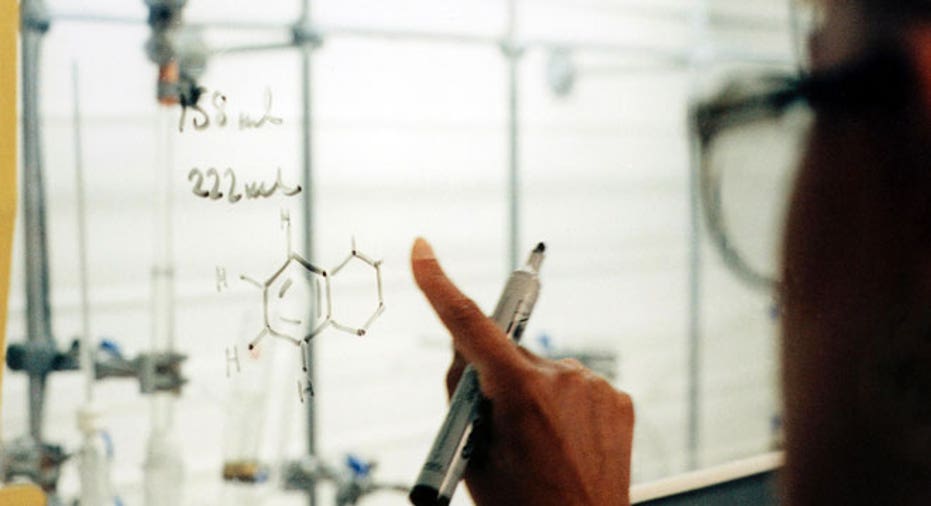AstraZeneca Forecasts Faster Return To Growth

AstraZeneca expects new drugs and a recent diabetes deal to offset a wave of patent expiries and return it to growth faster than analysts predict, with 2017 revenue likely to be broadly in line with the 2013 level.
The company's forecast implies a potential $3 billion upgrade to the consensus estimate from analysts and marks an attempt to call a bottom to a sales decline driven by the loss of exclusivity on several top-selling medicines.
Britain's second-biggest drugmaker is already suffering from generic competition to its antipsychotic Seroquel, while its Nexium treatment for excess stomach acid loses U.S. patent cover this year. Top-selling Crestor, for high cholesterol, faces competition from cheap copycat drugs in 2016.
The patent expiries leave AstraZeneca's sales on a near-term downward spiral at a time when most of its rivals have put their biggest patent losses behind them.
Shares in the group rose 1.6 percent by 1215 GMT on the more upbeat outlook, against a 0.3 percent decline for the European healthcare sector.
Chief Executive Pascal Soriot, who has been leading the company for a little more than a year, will set out the new revenue guidance in a presentation at the J.P. Morgan Healthcare conference in San Francisco later on Tuesday.
The company will then give a more detailed update on its progress in full-year results on Feb. 6.
The consensus of analyst forecasts compiled by Thomson Reuters is for 2017 revenue of $22.5 billion, down from the $25.8 billion estimated for 2013. However, a number of the 2017 forecasts pre-date the diabetes drug deal struck last month that is already expected to add some $1 billion to $2 billion to annual revenue.
Citigroup analyst Andrew Baum said the positive medium-term outlook reinforced his "more constructive thesis" for the stock, adding that he expects Soriot to strike more earnings-boosting deals this year.
Panmure Gordon's Savvas Neophytou remains more wary, pointing out that Soriot's predecessor, David Brennan, had made a similar attempt to talk up AstraZeneca's longer-term prospects.
"In our view, management is stepping onto thin ice with this same sort of guidance," Neophytou said, pointing out the previous management's failure to hit its forecasts.
DIABETES DEAL
AstraZeneca has become more confident about its revenue outlook after the $4 billion deal last month to buy Bristol-Myers Squibb's share of a diabetes joint venture. The acquisition is expected to complete in the first quarter of 2014 and will boost sales immediately.
Mark Clark of Deutsche Bank said this was set to lift analysts' revenue forecasts significantly, suggesting that a more realistic "adjusted consensus" for 2017 was around $24.3 billion rather than $22.5 billion.
Soriot has been striking a number of bolt-on deals to refill the company's thin pipeline of new medicines and accelerating in-house research programmes.
The group now has 11 new-drug programmes in late-stage Phase III testing, almost double the number a year ago, and 27 in Phase II.
Hopes are particularly high for its cancer research, where it has started trials for immunotherapy combination treatments for which the first results are anticipated in 2014/15.
AstraZeneca is behind the likes of Bristol-Myers, Roche and Merck & Co in the race to develop immunotherapies - a hot new area of cancer research - but it is betting on combination treatments to help it to catch up.
Immunotherapy, which harnesses the body's immune system to fight cancer, has shown great promise in clinical trials and analysts believe that the treatments may extend patients' lives significantly and generate tens of billions of dollars in annual sales.



















